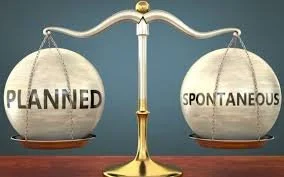Time to Retire “Bobbing” - Why the Commons Needs Transparent Call Lists
By Elect Her & Compassion in Politics
If you’ve ever watched the House of Commons, you’ll have seen it: MPs springing to their feet, sitting down, and springing up again — a strange, almost choreographed exercise in hope.
It’s called bobbing.
For centuries it’s been how MPs try to catch the Speaker’s eye to be called to speak. But in a modern democracy, this ritual has become not just outdated — it’s inefficient, unfair and unprofessional.
Our joint submission to the Procedure Committee argues that it’s time to replace bobbing with a transparent, professional system of call lists that reflects how a 21st-century Parliament should function: fair, efficient, and open to all.
“Bobbing” might once have symbolised the energy of the Commons.
Today, it symbolises the opposite: time wasted, expertise ignored, and it reinforces that sense of alienation.
It’s absurdly inefficient. MPs spend hours physically standing up and sitting down — sometimes dozens of times — for no guaranteed result. It wastes not only their time, but also that of the chamber and, ultimately, the public who expect their representatives to be working, not bobbing like concertgoers trying to catch a glimpse of the stage.
It ignores expertise. The most informed or passionate MPs on a topic might never be called — not because their insight isn’t valuable, but simply because the Speaker didn’t happen to see them.
It’s undignified and exclusionary. MPs who are newer, less familiar with the chamber’s unspoken etiquette, or have disabilities, health conditions, or caring responsibilities are disadvantaged from the outset.
And for the public watching, this bobbing dance looks bizarre, confusing, even comical. It does little to inspire confidence in a Parliament meant to embody deliberation and intellect.
Smarter System: call lists
Call lists
Are a tried and tested method to replace bobbong, they are published in advance and are a straightforward modern alternative. They set out who will speak and when. Call lists are better than bobbing, they -
Save time: MPs won’t need to sit through hours of proceedings just for a chance to speak.
Ensure fairness: Every MP knows where they stand and has equal access to speaking opportunities.
Use expertise wisely: MPs most qualified or experienced on a topic can be prioritised based on relevance, not visibility.
Improve preparation: When MPs know when they’ll be called, they can prepare stronger, more focused contributions.
Boost transparency: The public can finally see the process clearly — no mystique, no insider code.
Balancing the planned with the spontaneous!
Some traditionalists worry that call lists will make debate too rigid. But predictability doesn’t mean losing liveliness.
We propose a hybrid model:
Major debates and question sessions use published call lists.
Spontaneous interventions remain possible where flexibility matters most.
This preserves debate’s dynamism while removing its arbitrary gatekeeping.
Why change matters
Parliament’s procedures should reflect modern values: equality, transparency, respect for time and expertise.
Right now, “bobbing” does the opposite.
It entrenches hierarchy, wastes resources, and silences knowledgeable MPs.
Replacing it with transparent call lists would send a simple but powerful message: that the House of Commons is serious about professionalism, efficiency, and respect for the work of its members.
Our recommendations to the Procedure Committee
Replace the “bobbing” system with standardised, published call lists for debates and question sessions.
Ensure the process for inclusion is transparent and reviewed regularly.
Track participation and evaluate whether call lists increase diversity and fairness.
Continue modernising Parliament’s working practices to match the expectations of a representative democracy. Let’s fix the system, together.
Final thought
“Bobbing” is no way to run debates.
We elect MPs for their passion, experience, and judgement — not for how quickly they can spring from their seats.
It’s time to move beyond performative tradition and towards a Parliament that values knowledge over choreography.
Call lists aren’t just a procedural tweak — they’re a statement about fairness, efficiency, and respect for every MP’s voice.
Let’s Fix the System Together.
Blog idea or comment piece?
Would you like to contribute to this blog series? We’d love to hear from you. Send us your ideas and let’s chat: community@elect-her.org.uk.





